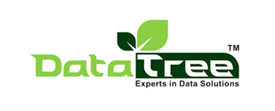Bookkeeping and Accounting Services
Need help with bookkeeping and accounting? Check out the guide below to learn about our services, and see how we can help you maintain accurate records and ensure compliance

In every organisation, irrespective of size, bookkeeping and accounting are essential for maintaining the financial health of the organisation. Bookkeeping helps in recording financial transactions, while accounting classifies, analyses, and interprets financial data to provide insights into your business's financial performance. These activities are crucial for making informed decisions, managing cash flow, and meeting compliance obligations. To manage these effectively, businesses often need the help of experts who can maintain their financial health.
For SMEs, outsourcing bookkeeping and accounting offers a strategic advantage by freeing up valuable time and improving the efficiency of these tasks. By partnering with experienced professionals, businesses gain access to specialised expertise, ensuring compliance with evolving tax laws and accounting standards.
Bookkeeping and accounting services go beyond recording transactions and generating reports. They provide valuable insights into a business's financial health, aiding in decision-making. By outsourcing, SMEs can also leverage advanced accounting software and technologies that streamline processes and improve efficiency.
Whether you are a startup or an established SME, outsourcing your bookkeeping and accounting tasks can improve your financial management. From single-entry accounting for smaller operations to double-entry accounting for more complex needs, professional services cater to a variety of business requirements.
Benefits of Outsourcing Bookkeeping and Accounting
Outsourcing your bookkeeping and accounting functions isn't just about handling routine tasks; it's a strategic move to optimise operations, enhance financial clarity, and fuel business growth. Here are a few benefits of outsourcing your bookkeeping and accounting tasks:
- Eliminates overhead costs such as salaries, benefits, software licences, and training.
- Provides instant access to a team of experienced accountants and bookkeepers proficient in the latest updates.
- Frees up valuable time and resources, allowing you to focus on serving your customers better.
- Offers flexibility to scale services up or down, adapting to periodic changes or business growth.
- Reduces the risk of errors, omissions, and fraudulent activity, safeguarding your financial assets.
- Provides access to management accounting services like budgeting, forecasting, and financial analysis, beyond basic bookkeeping.
Our Services
At Benchmark we offer your business a wide range of bookkeeping and accounting services that make sure your business has accurate financial records, compliance with tax regulations, and insightful financial reporting. Our services cater to businesses of all sizes, providing custom solutions to smoothen your financial management.
Our service offerings for bookkeeping and accounting include:
- We help you with the recording and classification of financial transactions using double-entry accounting systems.
- Bank reconciliation services to ensure accuracy in financial records and detect discrepancies.
- Provides you with accounts payable and receivable management, including invoice processing and payment tracking.
- Payroll processing, tax deductions, and statutory compliance with labour laws.
- Preparation of financial statements, including balance sheets, profit & loss accounts, and cash flow statements.
- Budgeting, financial forecasting, and variance analysis to support strategic decision-making.
- Periodic tax compliance, including GST, TDS, and income tax return filing.
- Financial data analytics and customised reporting for business performance insights.
- Advisory on accounting software selection, implementation, and automation.
Is Outsourcing Bookkeeping and Accounting Right for Your Business?
Determining whether outsourcing bookkeeping and accounting aligns with your business needs requires assessing your current financial management practices. If you struggle with disorganised records, keeping up with changing tax laws, or lack in-house expertise for financial reporting, outsourcing may be the best solution.
Outsourcing benefits small and medium-sized enterprises by offering cost-effective solutions and access to advanced accounting technologies without substantial upfront investments. By entrusting your financial functions to experienced professionals, you ensure your books are accurate and compliant, enabling data-driven decision-making.
Why Choose Benchmark
When it comes to your business’s financial health, it’s essential to choose the right bookkeeping and accounting partner. Benchmark stands out through its accuracy, expertise, and personalised services. Our team of qualified professionals has deep knowledge of Indian accounting standards and the unique financial challenges faced by businesses.
Whether you require bookkeeping, accounting services, or insightful financial analysis, Benchmark delivers customised solutions that match your specific requirements. We prioritise transparency, effective communication, and building long-lasting relationships with our clients.
Choosing Benchmark means gaining a trusted financial ally dedicated to helping your business grow.
Features of Bookkeeping and Accounting Services
Bookkeeping and accounting services provide several benefits beyond maintaining accurate financial records. Let's explore the key features that help businesses grow:
- Cloud-based accounting software grants instant access to financial data, facilitating informed decision-making.
- Stay ahead of updated tax regulations, ensuring accurate and timely filings to avoid penalties.
- Use financial analysis and reporting to identify trends, uncover opportunities, and make strategic business decisions.
- Monitor and manage cash flow effectively to maintain liquidity and financial stability.
- Gain insights into cash inflows and outflows, identify potential bottlenecks, and make informed decisions.
- Implement internal controls and accounting practices to safeguard financial assets and minimise fraud risk.
Difference Between Bookkeeping and Accounting
While the terms "bookkeeping" and "accounting" are often used interchangeably, they represent distinct but interconnected functions within financial management.
| Feature | Bookkeeping | Accounting |
|---|---|---|
| Primary Focus | Recording financial transactions | Interpreting, classifying, analysing, and summarising financial data |
| Scope | Daily financial activities | Financial reporting, analysis, and strategic decision-making |
| Key Processes | Data entry, bank reconciliations, accounts payable/receivable, payroll processing | Financial statement preparation, tax compliance, budgeting, forecasting, auditing |
| Output | Organised financial records, ledgers, and trial balances | Financial statements, management reports, tax returns |
| Technology | Accounting software, spreadsheets | Advanced accounting software, data analytics tools |
Documents Required for Bookkeeping and Accounting
Effective financial management requires transparent and meticulous record-keeping. Here are some essential documents needed for bookkeeping and accounting services:
- Sales Invoices
- Purchase Invoices/Bills
- Bank Statements
- Credit Card Statements
- Expense Receipts
- Payroll Records
- Loan Agreements & Interest Statements
- Fixed Asset Register
- Previous Year’s Financial Statements & Tax Returns
Process of Bookkeeping and Accounting
Turning raw financial data into actionable insights involves a systematic process. Here are the key steps involved in bookkeeping and accounting services:
Step 1: Data Collection and Organisation
Gather financial source documents like invoices, receipts, bank statements, and payroll records. Use accounting software or specialised tools to efficiently organise and categorise this data.
Step 2: Recording Transactions
Utilise double-entry bookkeeping to record each transaction, ensuring debits and credits balance. Classify transactions into appropriate accounts (assets, liabilities, equity, revenue, expenses).
Step 3: Bank Reconciliation
Compare bank statements with internal records to identify discrepancies and ensure accuracy.
Step 4: Accounts Payable and Receivable Management
Process vendor invoices, track payments, and manage accounts payable. Generate customer invoices, monitor collections, and manage accounts receivable to optimise cash flow.
Step 5: Payroll Processing
Calculate employee wages, deductions, and tax withholdings, then prepare and distribute paychecks or direct deposits.
Step 6: Financial Statement Preparation
Create the balance sheet, income statement, and cash flow statement based on recorded transactions.
Step 7: Financial Analysis and Reporting
Analyse financial statements to assess profitability, liquidity, and solvency. Generate customised management reports to provide insights into key performance indicators.
Step 8: Tax Preparation and Filing
Prepare and file tax returns, including income tax, GST, and TDS, in compliance with applicable regulations.
Step 9: Advisory and Consulting
Offer strategic financial advice based on data analysis and industry expertise. Assist with budgeting, forecasting, and long-term financial planning.
Step 10: Continuous Improvement
Stay ahead of changing accounting standards and regulations. Leverage technology and automation to enhance efficiency and accuracy.
Challenges in Accounting and Bookkeeping Services
While bookkeeping and accounting form the foundation of financial management, they come with challenges. Recognising and addressing these challenges is essential for maintaining accuracy, compliance, and overall financial health. Some common challenges include:
- Keeping up with constantly changing tax laws, accounting standards, and reporting requirements.
- Human error in data entry, incomplete or missing documentation, and inconsistent record-keeping.
- Staying updated on accounting software and technologies, which demand continuous learning.
- Implementing effective internal controls to reduce the risk of fraud.
- Handling complex transactions, such as revenue recognition, lease accounting, or foreign currency transactions.
- Ensuring effective communication and collaboration between accountants and clients.
Bottom Line
Effective bookkeeping and accounting go beyond compliance. They enable businesses to leverage financial data for growth. Whether you're a new entrepreneur or a seasoned business leader, partnering with Benchmark helps streamline operations, gain insights, and make informed decisions to propel your business forward.
Get in Touch
Ready to unlock your business's financial potential? Contact Benchmark today for a personalised consultation.
FAQs
What is the difference between bookkeeping and accounting?
Bookkeeping focuses on the systematic recording of financial transactions, while accounting involves interpreting, classifying, analysing, and summarising financial data to generate reports and provide insights.
Why should I outsource my bookkeeping and accounting instead of handling it in-house?
Outsourcing offers access to specialised expertise, cost efficiency, scalability, and advanced technology, freeing your internal resources to focus on core business activities.
What are the benefits of using accounting software for bookkeeping?
Accounting software integrates processes, automates data entry, reduces errors, and provides real-time access to financial information, enhancing efficiency and accuracy.
How do I get started with your bookkeeping and accounting services?
Reach out to us for a consultation. We will assess your needs, discuss your goals, and tailor a solution to support your financial success.




































